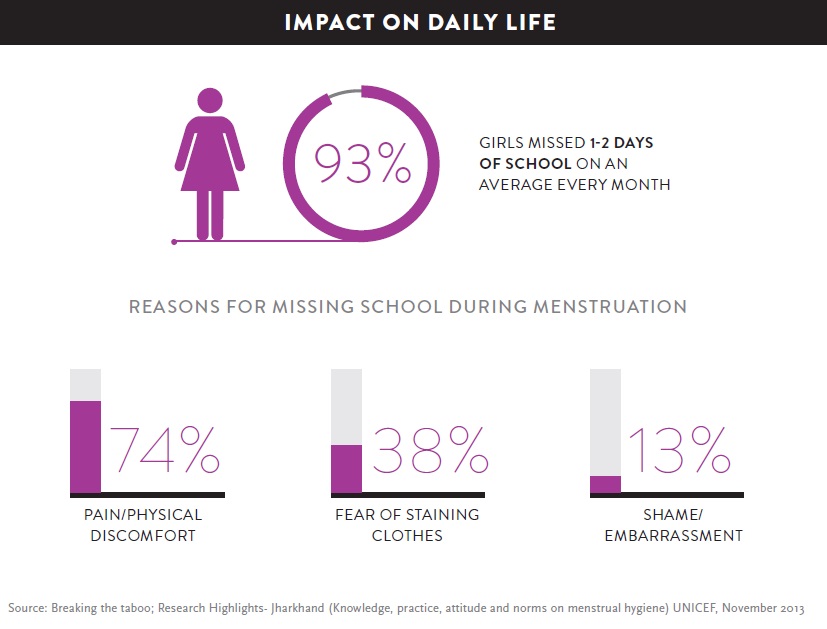The changes that accompany the onset of puberty—both psychological and physical—are significant for any young girl making the transition into womanhood. However, if these changes are accompanied by social stigma, the effects can be significantly detrimental on their young impressionable minds—as well as their overall health.
It is therefore unfortunate that a large number of adolescent girls and women, particularly in rural India, are still weighed down by unfounded taboos that surround menarche and the subsequent management of the menstrual cycle. The silver lining is that awareness is on the rise, and society is becoming increasingly conscious of the need to empower women by emancipating them from unscientific beliefs about menstruation.
The situation today
To be able to dispel myths, society must first be able to identify them as such. As a result, knowledge about menstruation and hygienic habits during this time are essential for adolescent girls. This knowledge will not only give young girls the confidence to talk freely about the subject without getting embarrassed, but also help them to ably manage it.
In a study carried out by NielsenIQ on behalf of UNICEF in rural areas of Bihar and Jharkhand, a framework was created on the understanding that exposure to communication on the subject could lead to increased awareness. This in turn would lead to change in practices and eventually benefit the lives of entire rural societies.
How well is she prepared?
With the stigma attached to discussing menarche, it is hardly surprising that an astounding 70% of girls felt completely unprepared for their first menstrual experience. But it is not just young girls who lack knowledge. When shown a body map of the female reproductive system and asked to identify the source of menstrual bleeding, only around a quarter of the girls and their mothers could correctly identify the source as the uterus. This knowledge was slightly better among teachers and the front line workers (FLWs), but clearly, a lot remains to be desired.
How aware is she about menstrual hygiene?
A vast majority of girls are perilously unaware of the health implications of poor hygiene in the management of their menstruation. And while teachers and FLWs have relatively high awareness of hygiene issues, this knowledge doesn’t seem to percolate to young girls who can also benefit from the same.
Self-confidence and menstruation
Several socio-religious restrictions still hold sway, like a restriction on menstruating women attending religious functions or touching items of worship. Adolescent girls are largely not confident about challenging such norms in the face of opposition from their families. Such regressive social norms also discourage girls from following best practices for absorbent disposal like burning menstrual absorbent cloth for ultimate disposal.
Menstruation and its impact
Alarmingly, the stigmas and taboos surrounding menstruation regularly and adversely affect most women, especially young girls. About nine in every 10 girls missed a day or two of school every month during menstruation, mainly due to physical discomfort as well as the fear of staining clothes. Almost six in every 10 girls reported high restrictions related to religious activities and a majority of them felt embarrassed because of these.

While awareness is still very low, mothers do want and expect their adolescent daughters to be empowered with knowledge. Therefore, communication campaigns designed specifically to provide information will be useful and well-received. A quarter of the girls who were respondents of the study read newspapers. Moreover, given that 72% of this audience has access to mobile phones and another 57% to television, media can provide the perfect platform for change.
Based on the current needs of this segment, communication is needed around washing, drying and storage of reusable menstrual cloth. Another possible subject to cover is hygienic disposal because very deep-rooted taboos currently surround burning as a method. The definite need of the hour is training of peer educators, as girls presently are most comfortable talking to their friends.
For more details, download the full report (top right).




